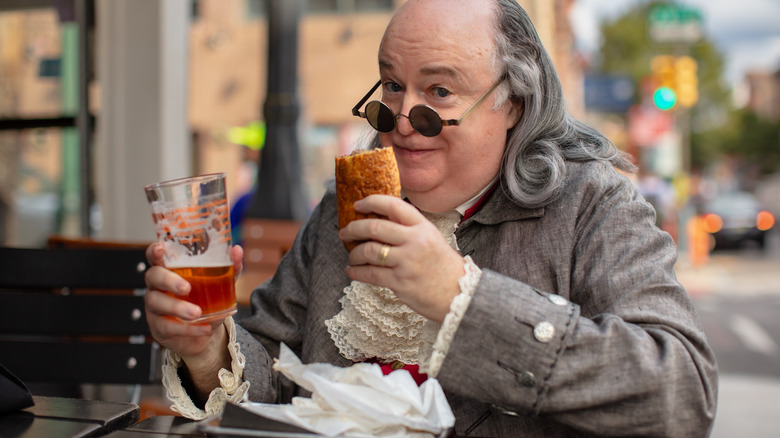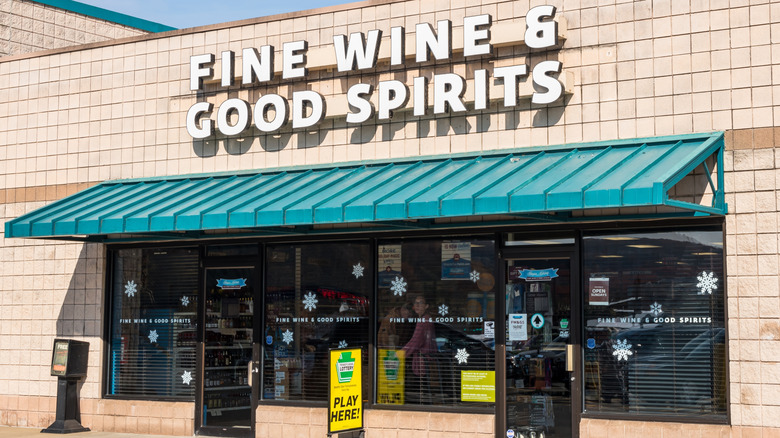Why Pennsylvania's Liquor Laws Are Some Of The Most Confusing In The Nation
There are a lot of regulations and laws in place to govern the production and sale of alcohol, and they're anything but straightforward. Take Aldi. The answer to whether or not Aldi sells alcohol anything but simple, as different states have different laws, and those laws dictate whether or not you can purchase Aldi at the closest location near you. And when it comes to the law (or specifically state law), there are few states that have more complicated liquor-related legislation than Pennsylvania.
In 2024, grocery stores and gas stations in Pennsylvania were given the greenlight to sell ready-to-drink cocktails ... until at least 11 p.m. Eight years prior to this, the state passed Act 39, which changed liquor sales in a big way, like allowing restaurants to sell bottles of wine to go, as well as permitting he sale of wine in grocery stores. Legislation was written and passed in order to solve what had become a major problem: The so-called "border bleed," a term which referred to the frequency in which consumers just went to another state to buy their alcohol, rather than navigating Pennsylvania's complex legislation.
So why is Pennsylvania like this in the first place? It goes all the way back to the end of Prohibition and then-Governor Gifford Pinchot. While many places can celebrate Repeal Day with some Prohibition-era cocktails, Pennsylvania's a little different. After making examples of bootleggers and moonshiners, Pinchot continued his anti-alcohol crusade post-Prohibition by establishing a State Liquor Control Board, along with a system that made state-run stores the only retailers that could sell alcohol. Subsequently, it took decades to get the ball rolling on reforming these laws, but that's just the tip of the iceberg.
Liquor laws in Pennsylvania are just a mess
Let's start this by saying that not all areas of Pennsylvania have the same liquor laws, thanks to a 2019 law that gave each of the state's 2,560 municipalities the power to pick and choose which ones they followed. At the time of this writing, about 675 of them are at least partially dry, which can mean enacting specifics as precise as allowing a restaurant to sell beer, but not wine, or vice versa. Or they could be completely dry ... and we're not even going to get into what it takes to change those uber-local laws. So let's try to simplify this, with the caveat that there are a whole bunch of licenses that dictate things like in what quantities alcohol can be sold and purchased. There's also the fact that these laws are (perhaps unsurprisingly) changing.
Generally speaking, you're only allowed to buy liquor at state-owned stores and distilleries, but those state-owned stores don't sell beer. (Speaking of beer — you can purchase it at bottle shops, convenience and grocery stores, bars, and breweries.) Wine, meanwhile, is sold at state stores, as well as places like bars and convenience stores — but it's limited to three liters per purchase. Planning on hosting a holiday party with some seasonal cocktails? You'd better plan ahead.

